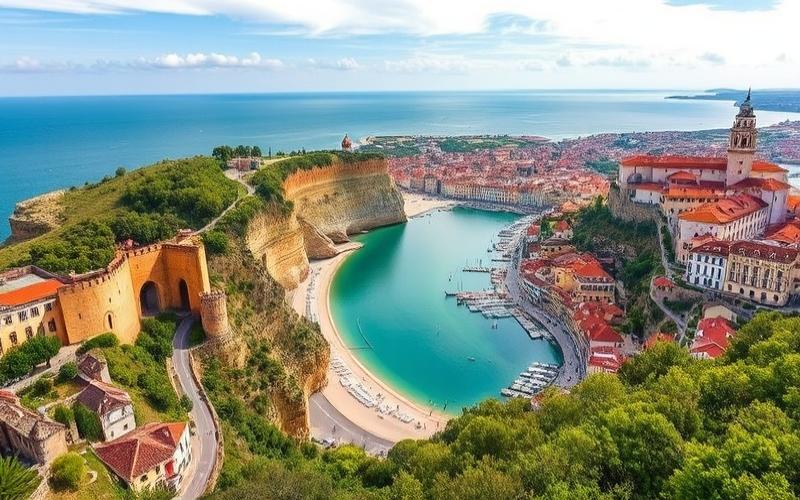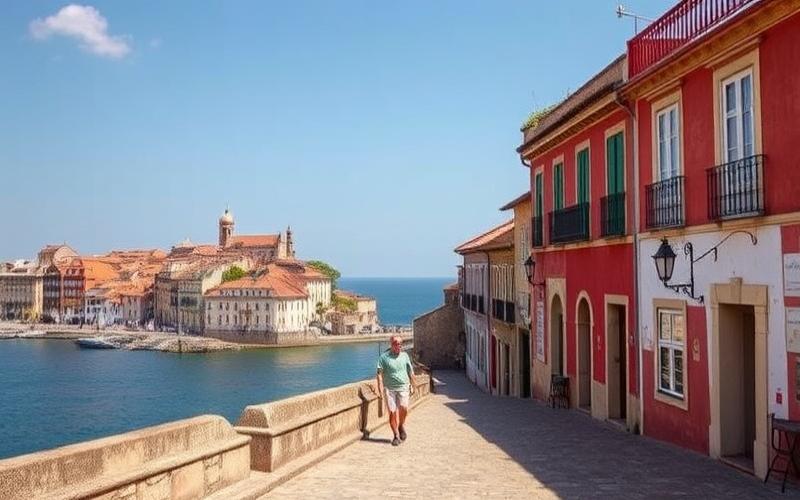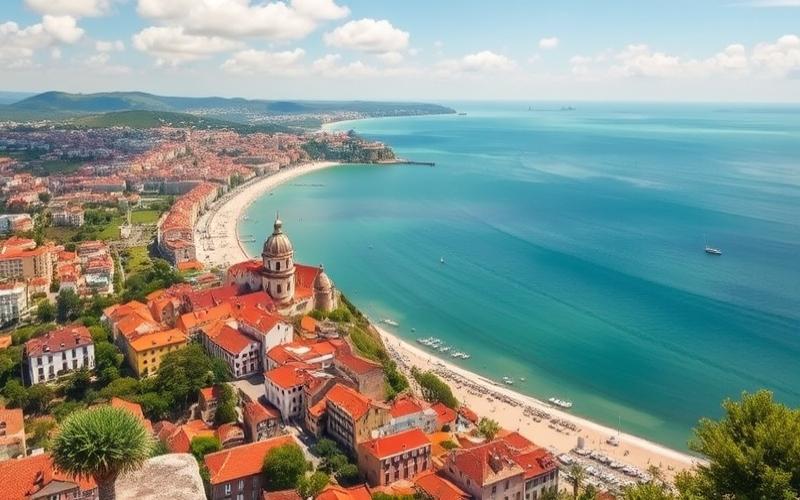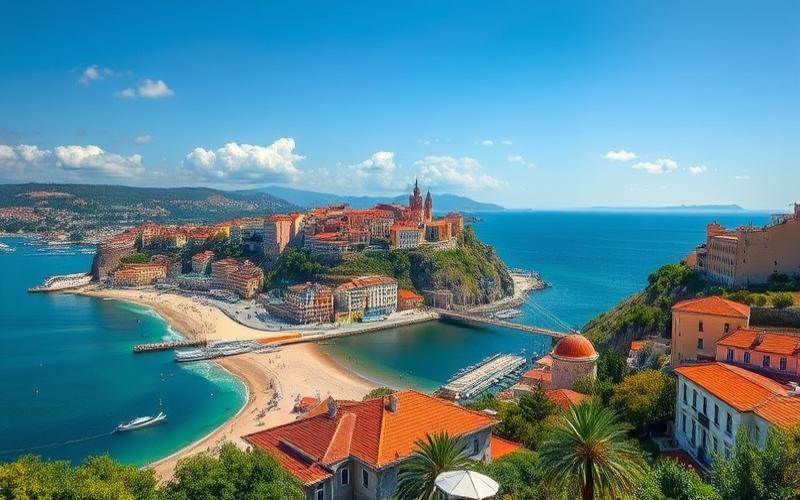
 Published on and written by Cyril Jarnias
Published on and written by Cyril Jarnias
Learning the local language is a crucial step for any expatriate wishing to fully integrate into their host country. In Portugal, mastering Portuguese opens many doors, both professionally and culturally. This article will guide you through the different methods and resources available for learning Portuguese, whether you’re a beginner or looking to improve your language skills.
The Importance of Learning Portuguese for Expatriates
Relocating to Portugal is a rewarding adventure, but it can also be frustrating if you don’t master the local language. Learning Portuguese is essential for several reasons:
- Facilitate social and cultural integration
- Improve professional opportunities
- Understand the subtleties of Portuguese culture
- Handle administrative tasks more easily
- Create deeper connections with locals
Many expatriates testify to the importance of language in their journey. As explained by Harriet Mitchell, an American living in Portugal: “During my first months in Portugal, I felt lost. I had classes, I studied, but in real life… I didn’t understand and I couldn’t speak!” Her experience highlights the importance of finding the right learning method to progress quickly and effectively.
Learning Methods Suitable for Expatriates
There are many ways to learn Portuguese, each suited to different learner profiles and goals. Here are some popular methods among expatriates:
1. Online Courses
Online courses offer great flexibility, ideal for expatriates with busy schedules. Platforms like Conversa Portuguese offer individual or group classes, suitable for all levels. The advantage of these courses is that they can be taken from anywhere, as long as you have an internet connection.
2. Local Language Schools
Many language schools in Portugal offer courses specifically designed for expatriates. These courses offer the advantage of linguistic and cultural immersion, with native teachers and proven teaching methods.
3. Language Tandem
Language tandem involves exchanging with a native speaker who wants to learn your mother tongue. This method allows for regular language practice in an informal context and promotes cultural exchanges.
4. Language Learning Apps
Apps like Duolingo, Babbel, or Memrise offer interactive and fun lessons, ideal for learning the basics of Portuguese or regular review. These tools are particularly useful for acquiring vocabulary and improving pronunciation.
5. Total Immersion
Total immersion involves completely immersing yourself in Portuguese language and culture. This can include watching Portuguese movies and series, listening to Portuguese music, reading local newspapers, and participating in cultural events.
Good to know:
Language immersion is the best method for learning informal language and perfecting language usage. With a B1 level, you’ll be able to communicate in most everyday situations.
Effective Learning Strategies
Regardless of the method chosen, certain strategies can accelerate your Portuguese learning:
1. Practice Regularly
Consistency is key in language learning. Try to dedicate at least 30 minutes per day to practicing Portuguese, whether by reviewing vocabulary, listening to podcasts, or conversing with locals.
2. Set Realistic Goals
Define clear and achievable goals. For example, learn 10 new words per day or aim to hold a 5-minute conversation in Portuguese by the end of the month.
3. Use Memorization Techniques
Memorization techniques like flashcards or the method of loci can help you more easily retain vocabulary and idiomatic expressions.
4. Immerse Yourself in Portuguese Culture
Learning a language goes hand in hand with discovering its culture. Participate in cultural events, read Portuguese books adapted to your level, watch movies in their original version with subtitles.
5. Don’t Be Afraid to Make Mistakes
Mistakes are part of the learning process. Don’t hesitate to engage in conversations, even if you’re not confident. Portuguese people generally appreciate expatriates’ efforts to learn their language.
Good to know:
The method of loci, also called the “memory palace,” is a memorization technique that involves associating information with familiar places. It can be very effective for retaining Portuguese vocabulary or expressions.
Basic Vocabulary and Useful Phrases
To help you get started, here are some essential Portuguese words and phrases:
- Olá – Hello
- Obrigado/a – Thank you
- Por favor – Please
- Como está? – How are you?
- Não compreendo – I don’t understand
- Onde fica…? – Where is…?
- Quanto custa? – How much does it cost?
- Fala inglês? – Do you speak English?
These basic phrases will help you get by in the most common everyday situations. Don’t hesitate to use them as soon as possible to gain confidence.
Resources for Learning Portuguese
Here is a selection of useful resources for learning Portuguese:
1. Online Courses
- Conversa Portuguese: individual or group classes with qualified teachers
- Explora Langues: Portuguese courses via video conference
- Digilangues: online learning platform with courses adapted for expatriates
2. Mobile Apps
- Duolingo: free app for learning Portuguese basics
- Babbel: structured courses with focus on conversation
- Memrise: learning through spaced repetition and mnemonic techniques
3. Podcasts and YouTube Channels
- Practice Portuguese: podcast and resources for learning European Portuguese
- Portuguese with Carla: YouTube channel with lessons for all levels
- RTP Play: Portuguese television streaming platform, ideal for language immersion
4. Books and Methods
- “Português XXI”: complete method for learning European Portuguese
- “501 Portuguese Verbs”: essential conjugation guide
- “Short Stories in Portuguese for Beginners”: collection of short stories adapted for beginners
Good to know:
The RTP Play platform offers free access to many Portuguese television and radio programs. It’s an excellent resource for immersing yourself in Portuguese language and culture.
Conclusion
Learning Portuguese is a valuable investment for any expatriate in Portugal. Not only will it facilitate your integration and daily life, but it will also open the doors to a rich and fascinating culture. Whether you choose online courses, a local language school, or self-study, the essential thing is to stay motivated and practice regularly.
Remember that every small progress counts and that even mistakes are part of the learning process. With perseverance and the right resources, you’ll soon be able to communicate fluently in Portuguese, significantly enriching your expatriate experience in Portugal.
Disclaimer: The information provided on this website is for informational purposes only and does not constitute financial, legal, or professional advice. We encourage you to consult qualified experts before making any investment, real estate, or expatriation decisions. Although we strive to maintain up-to-date and accurate information, we do not guarantee the completeness, accuracy, or timeliness of the proposed content. As investment and expatriation involve risks, we disclaim any liability for potential losses or damages arising from the use of this site. Your use of this site confirms your acceptance of these terms and your understanding of the associated risks.




























